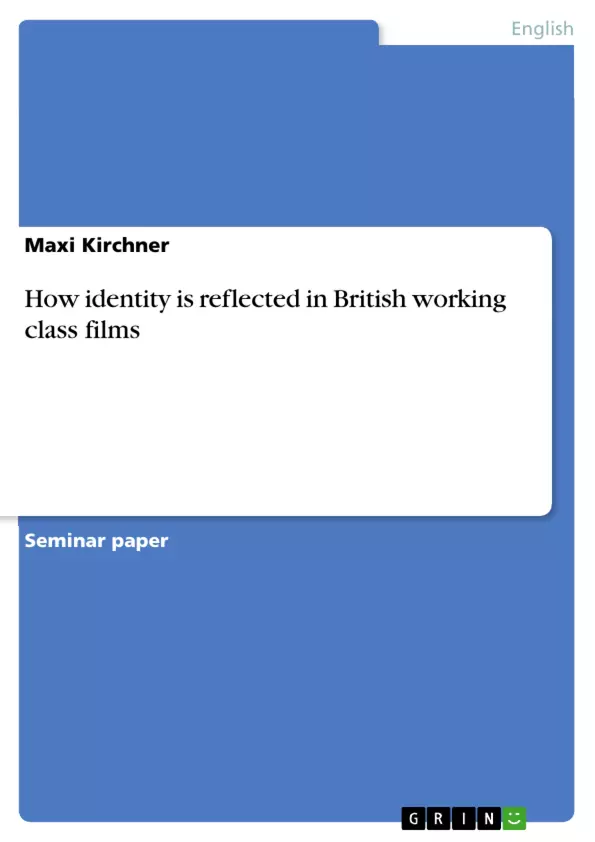This thesis compares several working class films such as "Brassed Off" and "Billy Elliot" with reference to the theoretical concept of national identity, ie. the British national identity.
The analysis of such a diverse cultural term like "identity" and its treatment in British working class related films will be the topic of this research paper. After having defined the term on its several levels, I want to show how identity is treated differently in, firstly, a popular film called "Brassed Off" and, secondly, an independent film produced by Amber Films called "Like Father". Both films are set in the 1990′s and deal with the problem of pit closure and unemployment of miners. Both films deal with the consequences of unemployment and poverty of the working class than with work per se. Concerning class consciousness, both films show people who wish to escape the constrictions of their class. Since identity is not only a question of class, gender roles are considered in both films as well. The motif of identity is shown very differently in these films. This thesis analyzes how these films represent the construction, the maintenance and the loss of identity.
Table of Contents
- DEFINITION
- CONSTRUCTION OF IDENTITY
- influencing power on construction.
- work in the films
- MAINTENANCE OF IDENTITY
- collective identity
- leisure in the films.
- LOSS OF IDENTITY
- Britain's identity crisis
- pit closure, unemployment, loss of prospects in the films
- SUMMARY
Objectives and Key Themes
This research paper examines the representation of "identity" within British working class films, focusing on "Brassed Off" and "Like Father" as examples. The paper will explore how identity is constructed, maintained, and lost in these films, considering factors such as class, gender, and social circumstances.
- The construction of identity within a social context
- The influence of class and gender on identity formation
- The impact of social and economic changes on working class identity
- The representation of leisure and work in relation to identity
- The role of collective identity and individual experience
Chapter Summaries
- DEFINITION: This chapter defines "identity" as a complex and multifaceted concept, exploring various theoretical perspectives, particularly those of Stuart Hall. It discusses the "post-modern subject," "enlightenment subject," and "sociological subject" as different conceptions of identity. The chapter also outlines various levels of identity, including individual, collective, national, and global identities.
- CONSTRUCTION OF IDENTITY: This chapter delves into the factors that influence identity construction. It highlights the role of social interaction, socialization, and the influence of one's environment in shaping individual identity. This section also explores the concept of "difference" as a key factor in identity formation, specifically within the context of British class society.
Keywords
This research paper focuses on key concepts such as identity, working class, British cinema, social class, gender, social interaction, social change, unemployment, pit closure, leisure, and collective identity. It examines how these concepts are reflected in the films "Brassed Off" and "Like Father," highlighting the complex interplay between individual and collective identities in a rapidly changing social context.
Frequently Asked Questions
How is identity reflected in British working-class films?
This thesis examines how identity is constructed, maintained, and lost in films like "Brassed Off" and "Like Father," focusing on the social and economic challenges of the working class in the 1990s.
What are the main themes of the film "Brassed Off"?
The film deals with the consequences of pit closures, unemployment, and poverty in a mining community, while also exploring class consciousness and the desire to escape class constrictions.
How does gender play a role in working-class identity?
The research analyzes how traditional gender roles are represented and challenged in these films, showing that identity is shaped by more than just social class.
What is "collective identity" in the context of these films?
Collective identity refers to the shared experiences and solidarity of the working class, often maintained through leisure activities and community traditions despite economic hardship.
What theoretical concepts of identity are used in the analysis?
The thesis references Stuart Hall’s work, discussing different conceptions of identity such as the "post-modern subject," "enlightenment subject," and "sociological subject."
- Quote paper
- Maxi Kirchner (Author), 2003, How identity is reflected in British working class films, Munich, GRIN Verlag, https://www.grin.com/document/53056



